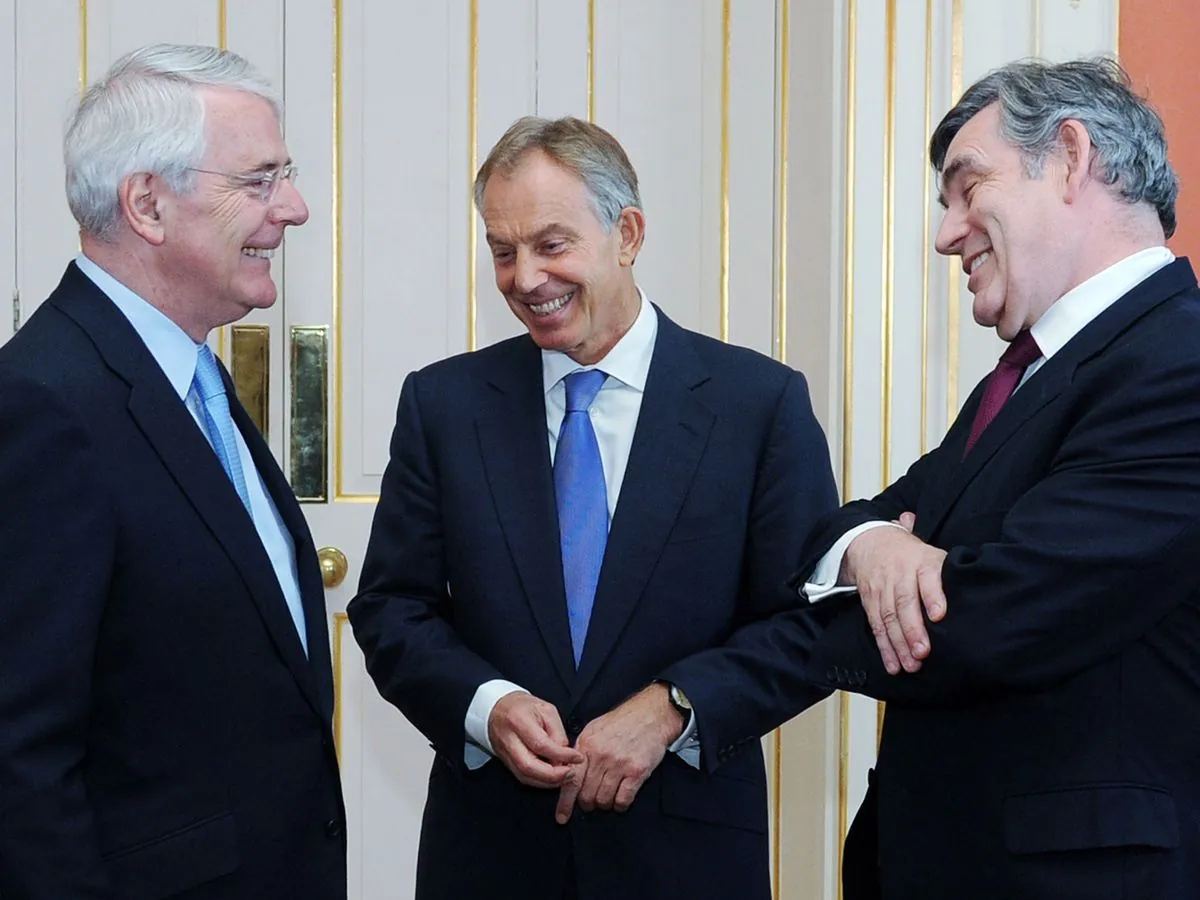Labour's Economic Legacy: From Boom to Bust and Beyond
Podcast explores Labour's historical spending, UK's slow growth since 2007, and the impact of public sector wage increases on the economy. Experts discuss the need for productivity growth.

In a recent episode of the Planet Normal podcast, columnists Liam Halligan and guest co-host Baroness Claire Fox engaged in a thought-provoking discussion with life peer Jon Moynihan about Labour's historical spending patterns and current economic challenges facing the UK.
The conversation began by revisiting the early years of Tony Blair and Gordon Brown's leadership, which began approximately 27 years ago. Moynihan highlighted an intriguing aspect of their initial economic strategy:
"The fascinating thing about the early years of the Tony Blair and Gordon Brown puppet show was that they promised, for the first three years, to keep to the Tory spending plans. It was quite famous."
This commitment to fiscal restraint aligns with Labour's 1997 manifesto pledge to adhere to Conservative spending plans for the first two years in office. However, the discussion quickly shifted to the subsequent economic developments under Brown's leadership.
Moynihan expressed concern about the UK's sluggish economic growth since the global financial crisis of 2007-2008, which occurred approximately 17 years ago. He attributed this slowdown not solely to the crisis itself but also to Brown's fiscal policies:
"The economy was growing like gangbusters, and it was wonderful. What went wrong, in my view, was not so much the great financial crisis, which was a complete disaster, but Gordon Brown took control of the economy and started spending like a drunken sailor to get re-elected. Bit by bit there was a massive spending spree, a lot of it completely wasted money, flooding the economy."
This perspective aligns with historical data showing that public sector spending in the UK increased from 36.3% of GDP in 1997 to 41% in 2007. Moynihan argued that this spending surge left the country ill-prepared for the financial crisis, stating, "by the time we came to the great financial crisis, there was not a lot of money left in the bank."

The discussion then turned to current economic challenges, particularly the recent public sector wage increases. Moynihan cautioned against raising salaries without corresponding productivity growth:
"There's no magic mountain providing extra salaries. The Labour government has just given huge raises to the whole of the public sector. They haven't done anything for that. They haven't grown their productivity, they're just getting more money. Well, if you're not growing the economy, that means a whole bunch of other people in the private sector are going to get less."
This observation highlights the ongoing struggle to balance public sector compensation with overall economic growth. It's worth noting that the UK's productivity growth has indeed been sluggish since the 2008 financial crisis, a factor that continues to impact economic performance.
The podcast discussion underscores the complex interplay between government spending, economic growth, and productivity. As the UK grapples with these challenges, the lessons from past economic policies remain relevant for shaping future strategies to foster sustainable growth and prosperity.


































